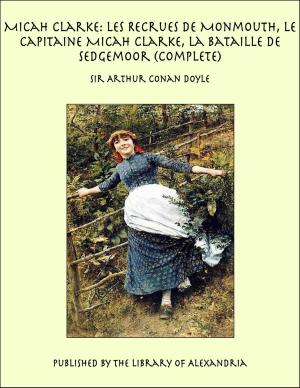| Author: | James de Mille | ISBN: | 9781465582096 |
| Publisher: | Library of Alexandria | Publication: | March 8, 2015 |
| Imprint: | Language: | English |
| Author: | James de Mille |
| ISBN: | 9781465582096 |
| Publisher: | Library of Alexandria |
| Publication: | March 8, 2015 |
| Imprint: | |
| Language: | English |
Chetwynde Castle was a large baronial mansion, belonging to the Plantagenet period, and situated in Monmouthshire. It was a grand old place, with dark towers, and turrets, and gloomy walls surmounted with battlements, half of which had long since tumbled down, while the other half seemed tottering to ruin. That menacing ruin was on one side of the structure concealed beneath a growth of ivy, which contrasted the dark green of its leaves with the sombre hue of the ancient stones. Time with its defacing fingers had only lent additional grandeur to this venerable pile. As it rose there --"standing with half its battlements alone, and with five hundred years of ivy grown"--its picturesque magnificence and its air of hoar antiquity made it one of the noblest monuments of the past which England could show. All its surroundings were in keeping with the central object. Here were no neat paths, no well-kept avenues, no trim lawns. On the contrary, every thing bore the unmistakable marks of neglect and decay; the walks were overgrown, the terraces dilapidated, and the rose pleasaunce had degenerated into a tangled mass of bushes and briers. It seemed as though the whole domain were about to revert into its original state of nature; and every thing spoke either of the absence of a master, or else of something more important still--the absence of money.
Chetwynde Castle was a large baronial mansion, belonging to the Plantagenet period, and situated in Monmouthshire. It was a grand old place, with dark towers, and turrets, and gloomy walls surmounted with battlements, half of which had long since tumbled down, while the other half seemed tottering to ruin. That menacing ruin was on one side of the structure concealed beneath a growth of ivy, which contrasted the dark green of its leaves with the sombre hue of the ancient stones. Time with its defacing fingers had only lent additional grandeur to this venerable pile. As it rose there --"standing with half its battlements alone, and with five hundred years of ivy grown"--its picturesque magnificence and its air of hoar antiquity made it one of the noblest monuments of the past which England could show. All its surroundings were in keeping with the central object. Here were no neat paths, no well-kept avenues, no trim lawns. On the contrary, every thing bore the unmistakable marks of neglect and decay; the walks were overgrown, the terraces dilapidated, and the rose pleasaunce had degenerated into a tangled mass of bushes and briers. It seemed as though the whole domain were about to revert into its original state of nature; and every thing spoke either of the absence of a master, or else of something more important still--the absence of money.















